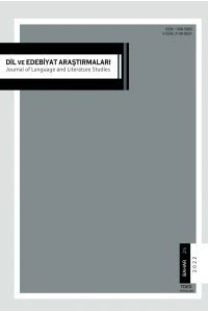E.M. Forster’ın Howards End Adlı Romanında Sınıf ve Sanat
Howards End sembolik olarak sadece İngiliz toplumunu değil bütün insanlığı temsil eden bir İngiliz evi bağlamında, modernizmin başlangıcında, karmaşa ve hareket halinde bir dünyada sanat ve edebiyatın bireyin kurtuluşunu sağlayıp sağlayamayacağını sorgular. Forster alt sınıfın sanat ve kültüre ulaşma çabasını ve sınıfsal farklılıkların sosyalist eğilimleri olan, kültür düzeyi yüksek bir üst sınıf bireyi üzerinde bile belirleyici olduğunu vurgulayarak, edebiyat ve sanat dünyasına karamsar ve eleştirel bir bakış sunar. Edebiyat ve sanatın hayat üzerinde fazla etkisi yoktur; olduğunda Tibby karakterinin gösterdiği gibi, gerçeklik karşısnda körleştirir ya da Leonard karakterinde gördüğümüz gibi, bir insanı yok edebilir. Alman idealizmine gönderme yapan Schlegel kız kardeşler ile vahşi kapitalist Wilcox ailelerinin birlikte, alt sınıf üyesi Leonard’ın ölümüyle temsil edilen alt sınıfı yok edişleri, okuma ve sanata değer vermenin, ince bir zeka ve estetik anlayışa sahip olmanın, sanat ve edebiyat konusunda bilgisiz bir üst sınıfla aynı düşünce yapısını paylaşmasına engel olamayacağını gösterir. Forster edebiyatın toplumu dönüştürücü etkisi olmadığını, sınıf ve cinsiyet hiyerarşilerinin edebiyat ve sanatla ortadan kaldırılamayacağını öne sürer.
Class and Art in E. M. Forster’s Howards End
Howards End presents a world in flux and mobility in the advent of modernism where art and literature aretested for their ability to save the individual in the context of a quest for an English house, Howards End,which on a symbolic level represents not only the English but all humanity. Forster shows the world ofliterature and art in a very pessimistic and critical way with an emphasis on the lower-class’ futile strivingfor art and culture and on the over determination of class differences even for a cultivated upper-classindividual with socialist aspirations. The destruction of the lower class, represented by Leonard, by thetwo upper-class families, the Schlegels, representing the German idealism and the Wilcoxes, the brutalcapitalists, shows that appreciation of art does not make the refined mind immune to sharing a commonground with the philistine upper-class. Forster suggests that literature does not have the power to change thesociety, and that class and gender hierarchy cannot be overcome by literature or art.
___
- Mathew Arnold (1993). ‘The Function of Criticism at the Present Time”, The Norton Anthology: English Literature II, New York: W. W. Norton & Company, Inc. 6th ed., p.1397
- Austen, Jane (1994), Pride and Prejudice, London: Penguin Group.
- Berlin, Isaiah (2004), Romantikliğin Kökleri, trans. Mete Tunçay, İstanbul: YKY.
- Forster, E.M. (1987), Howards End, ed. Oliver Stallybrass, London: Penguin.
- Green. Robert (1969 January), “Messrs Wilcox and Kurtz, Hallow Men”, Twentieth Century Literature, Vol. 14, No.4, p.231- 239.
- Helfer, Martha B.(1996 Spring), ‘Dorothea Veit-Schlegel’s Florentin: Constructing a Feminist Romantic Aesthetic’, The German Quarterly, Vol. 69. No. 2, p. 144-160.
- Hodge, Elizabeth (2006 Summer), ‘The Mysteries of Eleusis at Howards End: German Romanticism and the Making of a Mythology for England’, International Journal of the Classical Tradition, Vol. 13, No. 1, p. 33-68.
- Hoy, Cyrus (1960 March), ‘Forster’s Metaphysical Novel’, PMLA, Vol. 75, No 1, p. 126-136.
- Hoy II, Pat C. (1985 Summer-Autumn), ‘The Narrow, Rich Staircase in Forster’s Howards End’, Twentieth Century Literature, Vol. 31, No.2/3, p. 221-235.
- Lange, Victor (1955 Autumn), ‘Friedrich Schlegel’s Literary Criticism’, Comparative Literature Vol. 7, No.4, p. 289-305.
- Littau, Karen (2006), Theories of Reading: Books, Bodies and Bibliomania, Cambridge: Polity Press.
- Ruskin, John (1993), ‘From The Stones of Venice’, The Norton Anthology: English Literature 2, New York: W. W. Norton & Company, Inc. Sixth ed.
- Shiner, Larry (2001), The Invention of Art: A Cultural History, Chicago: Chicago UP.
- Tompkins, Jane P. (1980), ‘The Reader in History: The Changing Shape of Literary Response’, Reader-Response Criticism: From Formalism to Post-structuralism, ed. Jane P. Tompkins, Maryland: The John Hopkins UP.
- ISSN: 1308-5069
- Yayın Aralığı: Yılda 2 Sayı
- Başlangıç: 2010
- Yayıncı: TÜRKİYE DİL VE EDEBİYAT DERNEĞİ
Sayıdaki Diğer Makaleler
18. Yüzyıl Şairlerinden Abdullah Sıdkî ve Divan’ının Şekil Özellikleri
Türk Kültüründe Evlilik (Geleneğin Son Yüzyılı - Samsun Örneği)
Sinop’un Ahmet Muhip Dıranas’ın Şiirlerindeki Pastoral Duyarlılığa Etkisi
Textlinguistic Analysis of the Short Stories and Language Teaching, Sample of Eveline By Joyce
Class and Art in E. M. Forster’s Howards End
Shelley’nin Prometheus Unbound İsimli Eserinde Devrimci İdealizm
E.M. Forster’ın Howards End Adlı Romanında Sınıf ve Sanat
